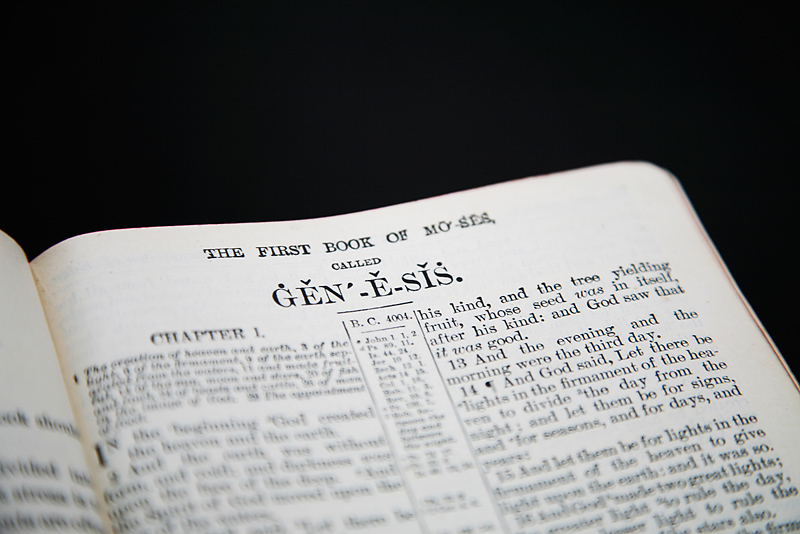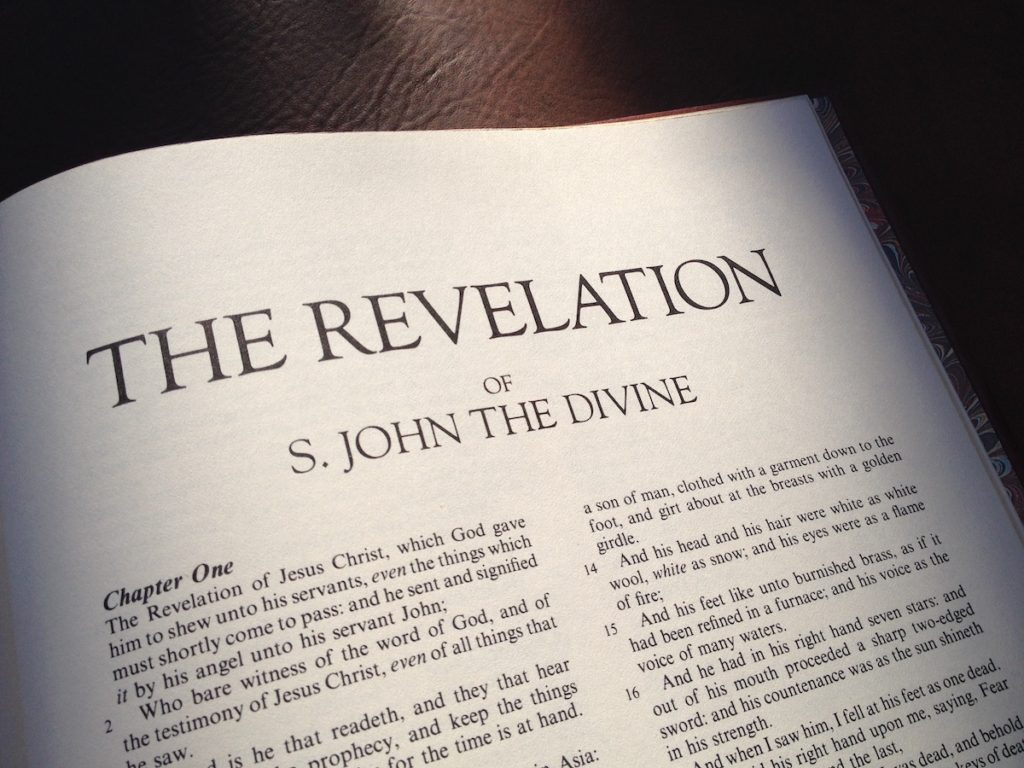
My commentary on the first five chapters of Genesis is 67 pages. There is no way this can be shared in a blog. So I will give you some hopefully salient snippets from my commentary.
Genesis 1
Genesis 1:1, Elohim created the heavens and the earth. The process of creation lasted for a literal six days as stated in Exodus 20:11.

Heavens. The Bible reveals that there are at least three heavens: the heaven of earth’s atmosphere, the heaven of the sun, moon, planets and stars, and the heaven of YHVH Elohim’s abode.
Genesis 1:16, Greater light…lesser light. Elohim made two great lights to shine in the darkness—the sun (the greater light) and the moon (the lesser light). The sun is a spiritual picture of Yeshua whom the Bible calls the Light of the world (John 1:9; 8:12), the Sun of Righteousness (Mal 4:2), whose face shines like the sun (Rev 1:16), and who will be the light of the New Jerusalem replacing the physical sun (Rev 21:23). But who does the moon represent in this spiritual picture? If the sun is a picture of Yeshua, the Light of the World, then who has been tasked with the responsibility of reflecting Yeshua’s light into the spiritual darkness of this world? Of course, this is the job of the saints who Yeshua called to be a like light on a hill (Matt 5:14), or a menorah lamp stand (Rev 2:1).
Now think about this. Although the moon is a quarter of a million miles from the earth, and because it has no atmosphere to absorb the sun’s light, it is able to reflect the sun’s light to this earth, so that a person is able to see in the darkness of night. The amazing thing is that the moon’s surface isn’t a polished mirror. Rather, it’s a dull rocky surface. Not only that, it’s not even flat. It’s pockmarked—covered with huge craters, mountains, valleys and canyons. With such an uneven, gray and nondescript surface, it seems miraculous that it’s even able to reflect any light at all, much less all the way to the earth! This speaks to the unimaginable power of the sun to throw its light such a great distance through space and then to ricochet it off the moon earthward even though the moon’s surface is anything but reflective.
The moon is a perfect picture of each of us. We are nondescript in appearance, possess rough natures, stoney hearts, gray dispositions, barren of spiritual fruit, possessing no power of our own, pockmarked by sin, covered by mountains of human pride, and etched with canyons of guilt and shame. In truth, YHVH has not chosen many wise or noble people to reflect the light of his Son, Yeshua, the Sun of Righteousness, but instead he has chosen the weak, foolish, despised and base things of this world to put to shame the things that are wise (1 Cor 1:26–28). As the lesser light, like the moon is to the sun, YHVH has called the saints to be his sons of light (Luke 16:8; John 12:36; Eph 5:8; 1 Pet 2:9) to shine the Light of Yeshua into the midst of crooked and perverse world (Phil 2:15).
Since Yeshua has called us out of spiritual darkness into his marvellous light, let us embrace and demonstrate the fact that he calls us a chosen generation, a royal priesthood, a holy nation and his own special people by being ready and quick to proclaim his praises to everyone everywhere every time (1 Pet 2:9)!
The Sun, Moon, the Feasts and the Saints. Genesis 1:14–16 reveals that the sun is the greater light and the moon is the lesser light. The Bible reveals that the sun is a spiritual metaphor for Yeshua who is the Sun of Righteousness (Mal 4:2), the Light of the World (John 8:12) and whose face shines like the sun (Rev 1:16). The saints, like the moon, are the lesser light that reflects the light of Yeshua into this dark world. One of the ways the saints do this is through observing and teaching about the seven biblical feasts, which are the seven steps of YHVH’s plan of salvation. Seeing the visible new moon is how we determine the beginning of the months and hence the dates of the feasts. In other words, by the light of the moon we determine the feasts. The visible new moon is a visible sign (Heb. owt, Gen 1:14) to point us toward YHVH’s seasons or moedim (i.e. the biblical feasts). In the same way, by our reflecting the light of Yeshua and the truth of his feasts into this dark world, we bring the light of the gospel to the world. This analogy breaks down if the month starts when the moon is dark in its conjunction.
Genesis 1:28, Dominion over the fish…birds…[the land animals]. Elohim gave man dominion over the animals. Elohim, however, never, however, gave man the authority to take dominion over other people, which is what Cain, Nimrod and their descendants did when they started cities, states and kingdoms.
YHVH’s government is patriarchal and tribal in nature and is built on the foundation of the family, which is something the devil and his servants have been attacking from time immemorial.
Yeshua echoes this same divine prohibition of man ruling other men in Matt 20:25–26 where he tells his disciples that the Gentiles rule each other through oppression, but that was not how the kingdom of Elohim was to operate. Government was to be based on servant-leadership.
Elohim created man to work the land and to live free, and he designed humans to be more or less self-sufficient and to help each other in loving service to one another when and where needed. The Scriptures decry and even pronounce woe upon those who form urban communities as they “join house to house,” so that people no longer “dwell alone in the midst of the land” on ten acre farms (Isa 5:8–10).
Men’s cities and the hierarchial Babylonian system of government they require to operate is opposed to Elohim’s system of family farms and patriarchal servant-leadership. This is because the urbanization of men results in the collectivization of humans by other humans ostensibly for the purpose of making life easier, but in reality, it enslave them to oppressive human-led governmental systems where humans are forced to look to human leaders for their sustenance and for handouts instead of relying on the Creator. This bondage is forcibly financed through legalized extortion called taxation, and enforced through draconian government regulations that control nearly every aspect of a person’s life.
This transferral from a rural to an urban-based society model not only reduces man’s freedom and self-sufficiency as he becomes increasingly dependent on government for his sustenance, but it also tends to facilitate spiritual apostasy, the breakdown of the family and the stratification or splitting apart of society. In other words, the rich get richer and the poor get poorer, class distinctions occur, which further divide and separate people causing racism and prejudice as men slide downward morally and spiritually away from Elohim. The family on the micro and macro levels fall apart and disintegrate.
Moreover, such a system promotes institutionalized religious systems and personally enriches those who are at the pinnacle of those systems. Out of this false, non-biblical system, religious construction projects such as temples, cathedrals and educational institutions abound allegedly to enhance the worship of Elohim, but in reality, they’re usually monuments, not unlike the ziggurat Tower of Babel, of men’s achievements as men are attempting to reach Elohim through their own humanistic efforts and turn themselves into their own self-promoting and self-adulating demigods. Elohim doesn’t require the construction of such projects for men to have a personal, spiritual relationship with him, as Paul states in his epistle to the Romans, which is a rephrasing of a passage from Deut 30, “But the righteousness of faith speaks in this way, ‘Do not say in your heart, “Who will ascend into heaven?’’’ (that is, to bring Messiah down from above) or,”, “Who will descend into the abyss?”’ (that is, to bring Messiah up from the dead). But what does it say? ‘The word is near you, in your mouth and in your heart’ (that is, the word of faith which we preach)” (Rom 30:6–8). The construction of denominations and buildings are primarily for the benefit of the ruling elite who have found a way to insert themselves as middlemen between man and his Creator largely for the purposes of money and power.
All of these things are a result of the man’s move from a rural to an urban living environment and taking dominion over one another instead of stewarding the earth and its animals and serving one another in love as Elohim originally instructed him to do.
Genesis 2
Genesis 2:2, The seventh day. Sabbath. Though this is not a direct command to keep the Sabbath (Heb. Shabbat), YHVH was leading his people by example when he sanctified the Sabbath and then rested from his work on this day. In Hebraic thought, one leads by example, without necessarily stating the command to do so. YHVH blessed the family first (Gen 1:28), then Sabbath next. Sabbath keeps the family together that keeps the Sabbath. The imperative command to keep the Sabbath is first found in Exodus 16–30 and then repeated in 20:8–11.
Genesis 2:4, The LORD/YHVH. This is the first mention in the Scriptures of the name of Elohim. He wants us to use his Hebrew names (YHVH, Elohim, Adonai and Yeshua). If not, then why is “YHVH” found in the Tanakh nearly 7000 times? True, we are not to use his Hebrew name carelessly as the third commandments teaches us (Exod 20:7). YHVH’s people have forgotten his name (Ps 44:20; Jer 23:27). His name will be restored and used again (Jer 23:6; 31:23; Ezek 39:7). His name was so precious to his people in ancient times that it was used in common greeting (Ruth 2:4; Ps 129:8; Jer 31:23). The Hebrew name YHVH will be applied to Yeshua at his second coming (Ps 118:26; Matt 23:39). The prohibition of the rabbinic Jews about using God’s Hebrew names is not supported biblically, but is a more recent man-made tradition. Therefore, I believe and teach that the sacred names are to be used.
Continue reading















